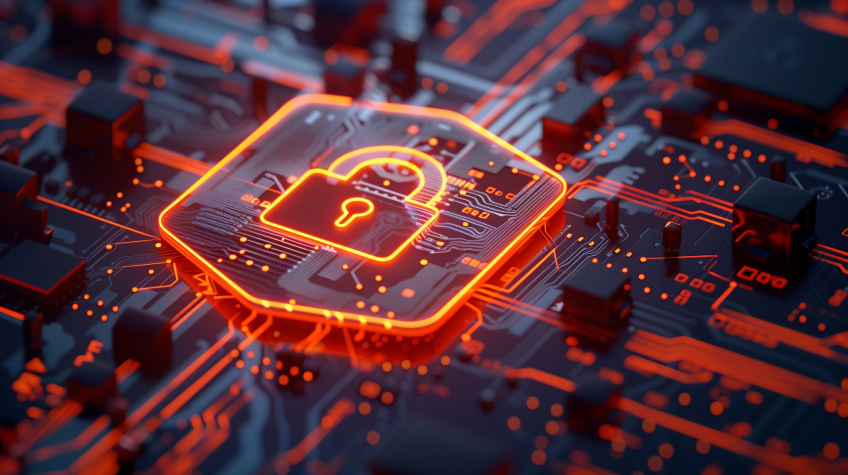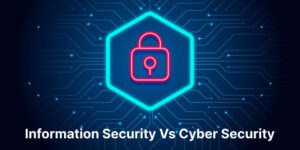
Cybersecurity is the practice of securing systems, networks, and data from digital attacks, unauthorized access, and data breaches. With the exponential rise of online transactions, remote work, and digital connectivity, the importance of cybersecurity has never been greater. From personal data and financial information to business operations and intellectual property, the risks of cyber threats are significant, impacting individuals and organizations alike. Cybersecurity works to protect sensitive data, ensuring its confidentiality, integrity, and availability in a world where cyberattacks are increasingly sophisticated.
A cyber security course is a precious resource for anyone interested in understanding and mitigating these risks. Such courses cover foundational areas like network security, data encryption, threat analysis, and ethical hacking, giving learners a comprehensive view of how to identify, prevent, and respond to cyber threats. They also explore real-world case studies, offering hands-on experience with tools and strategies to defend against common attacks like phishing, ransomware, and malware.
By enrolling in a cyber security course, individuals gain critical skills required to protect data assets effectively. Whether for career advancement or personal knowledge, mastering cybersecurity principles enables a proactive approach to safeguarding data in today’s digital landscape. As cyber threats advances, a solid foundation in cybersecurity becomes essential for creating a safe and resilient digital environment.
What helps in Safeguarding the Data?
Safeguarding data demands a multi-layered approach that integrates technological defenses, best practices, and a proactive cybersecurity mindset.
Key components are:
- Strong Passwords and Authentication: Using complex passwords and multi-factor authentication adds a layer of security, making it almost impossible for not authorized users to access sensitive information.
- Data Encryption: Encrypting data converts it into a code, which makes sure that only authorized parties can access the information, even if it is intercepted.
- Regular Software Updates: Keeping software and systems updated protects against known vulnerabilities, as updates often contain critical security patches.
- Firewalls and Antivirus Software: Firewalls and antivirus programs detect and block malware and other harmful software, protecting devices from potential cyber threats.
- Employee Training and Awareness: Educating employees on phishing, social engineering, and safe online practices is essential, as human error is a common entry point for cyberattacks.
By implementing these strategies, individuals and organizations can significantly minimize the risk of data breaches, ensuring that sensitive information remains protected in a digital-first world.
The vital role of Data Security in the digital era
Here’s why data security plays a vital role in the digital era:
- Protection Against Cyberattacks: With cyberattacks such as ransomware and phishing on the rise, data security prevents unauthorized access to sensitive data. For instance, banks employ robust data security to protect customers’ financial information from hackers.
- Safeguarding Personal Information: Data security takes care of the privacy of personal data, which includes health records and social security numbers. For example, healthcare providers use encryption to protect patient data, adhering to regulations like HIPAA.
- Maintaining Customer Trust: Companies that prioritize data security foster customer trust and loyalty. E-commerce sites such as Amazon implement advanced security measures to ensure safe online transactions, building confidence among users.
- Compliance with Regulations: Data security is essential for meeting regulations like GDPR and CCPA, which safeguards user privacy. Non-compliance can result in significant fines, making data security a priority for businesses.
- Preventing Financial Loss: Data breaches can lead to very expensive recovery efforts, legal fees, and loss of revenue. Sony’s 2014 cyberattack, for example, led to millions in damages, highlighting the need for proactive data security.
Data security is vital in today’s digital landscape, protecting data, reputations, and finances across industries.
How is Cyber Security important for safeguarding data and protecting privacy?
Here’s how cyber security is important for safeguarding data and protecting privacy:
1. Data Protection
- Prevents Unauthorized Access: Cyber security measures like firewalls and encryption prevent hackers from accessing sensitive information.
- Mitigates Data Breaches: strong cyber security strategies protect data from breaches that can expose personal and business information.
2. Privacy Preservation
- Protects Personal Information: Cybersecurity ensures private data, like social security numbers and financial records, remains confidential.
- Ensures Compliance with Privacy Laws: Adhering to regulations such as GDPR and HIPAA protects users’ rights and keeps organizations compliant.
3. Trust and Reputation
- Builds Customer Confidence: Customers trust organizations that demonstrate strong cybersecurity, enhancing loyalty and reputation.
- Prevents Financial and Legal Risks: By safeguarding data, organizations avoid costly recovery efforts and legal penalties.
Cybersecurity is crucial in the digital world for securing data and maintaining privacy, helping businesses and individuals build secure, trusted digital environments.
Secure the future with Cyber Security
Securing the future with cybersecurity is essential as digital threats are advancing and become more complicated. By investing in robust cybersecurity practices, businesses and individuals can protect sensitive data, ensure privacy, and maintain trust in digital environments. A cyber security certification course equips learners with the skills required to overcome cyber threats in a more efficient way. Through hands-on training, participants gain insights into essential areas such as threat detection, ethical hacking, and network security, empowering them to build resilient defense strategies.
As we become more reliant on digital systems, from personal finance to national infrastructure, the demand for skilled cybersecurity professionals is skyrocketing. Completing a certification course in cyber security not only enhances career opportunities but also contributes to creating a safer digital world. Trained professionals play a key role in identifying vulnerabilities, defending systems and educating others on best practices, ultimately securing the digital future for organizations and society at large.
Conclusion
In today’s digital age, safeguarding data through robust cybersecurity practices is more crucial than ever. As cyber threats grow in sophistication, strong cybersecurity measures protect sensitive information, maintain privacy, and uphold the trust of customers and stakeholders. From encryption and secure networks to continuous monitoring and employee education, every layer of protection strengthens our defenses against data breaches and cyber-attacks.
Embracing cybersecurity as a priority not only ensures compliance with data protection laws but also mitigates financial and reputational risks. Ultimately, investing in cybersecurity is essential to secure both current operations and the future of digital information.






